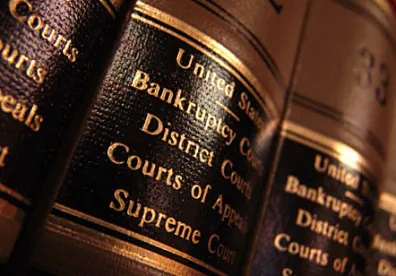On February 6, 2018, the District Court for the District of Montana refused a debtor’s request to change the venue of a post-petition “related to” police/regulatory action commenced by a federal agency in district court. The decision will have important implications on how “related to” litigation is treated for venue purposes—especially in the context of police and regulatory actions.
The debtor, Think Finance, LLC, provided critical collection services to certain Native American Tribes engaged in consumer lending. The company’s collection actions had raised the attention of the Consumer Financial Protection Bureau (CFPB). Think Finance filed a Chapter 11 bankruptcy petition in the Northern District of Texas after mediation between the CFPB and Think Finance had broken down. Three weeks after Think Finance filed bankruptcy, the CFPB filed a complaint against Think Finance in the District of Montana, alleging that the company, acting through tribal lenders, collected loan payments that customers did not owe because the loans themselves were void ab initio as being in violation of state law. The CFPB further alleged that Think Finance acted knowingly and recklessly in assisting the tribal lenders and employed abusive collections practices.
Think Finance moved the Montana District Court to transfer the venue to the District Court for the Northern District of Texas under 28 U.S.C. § 1412—anticipating that the district court there would transfer the action to the bankruptcy court presiding over Think Finance’s Chapter 11 case.
The parties disagreed on which change of venue statute should apply. The CFPB argued in favor of the court applying 28 U.S.C. § 1404, which favors a plaintiff’s venue selection and requires the party seeking a change in venue to demonstrate that changing venue would be more convenient and serve the interests of justice. In contrast, Think Finance asked the court to apply 28 U.S.C. § 1412, which “carries a presumption in favor of transfer to the bankruptcy court” and requires only a showing of convenience or interest of justice.
The court first considered which change of venue statute applied. It began by analyzing the importance of police and regulatory actions—a designation applicable to the CFPB’s cause of action—and their exemption from the bankruptcy automatic stay pursuant to 11 U.S.C. § 362(b)(4). The parties did not dispute that the CFPB’s action was a police action and was “related to” the Texas bankruptcy proceeding. The court then turned its attention to venue.
Section 1412 allows the change of venue for a case or proceeding “under title 11.” Think Finance argued that the court should use this language to transfer venue to Texas. However, as the court noted, it is unsettled within the Ninth Circuit whether “under title 11” also includes cases “related to” bankruptcy proceedings. The CFPB distinguished orders to change venue of “related to” actions under section 1412, arguing that a police or regulatory action should be treated differently than a common commercial dispute. Neither the parties nor the court was able to locate a case transferring a police or regulatory action brought by a federal agency in this context. The court was ultimately persuaded by the police action exemption from the automatic stay, noting that the public policy underlying the exception from the automatic stay was in tension with the policy underlying the presumption of transfer in section 1412. Under section 1412, the most important consideration is “whether the requested transfer would promote economic and efficient administration of the estate.” By contrast, the court noted, Congress explicitly indicated that police and regulatory actions present concerns more important than the goals of efficiency and maximizing estate value, which is why they are exempted from the automatic stay in the first place. Accordingly, the court agreed with the CFPB and held that these policy concerns coupled with the plain language of statute weighed against applying section 1412. Nonetheless, the court in dicta indicated that Think Finance would not have prevailed on its section 1412 argument, primarily because (a) section 1412, by its express terms, captures cases arising “under title 11” and not cases “related to” bankruptcy proceedings, and (b) the CFPB’s action involved the interests of thousands of Montana residents and their interests outweighed the interests of the few Think Finance witnesses located in Texas.
Turning next to section 1404, the court noted that section 1404 provides that the court may transfer a civil action “[f]or the convenience of parties and witnesses, in the interest of justice.” With regard to the interest of justice, the court gave great deference to the CFBP’s venue selection. The court was unmoved by Think Finance’s concern over litigating in two forums—noting that Congress would have considered this when exempting police and regulatory actions from the automatic stay. The court was also particularly persuaded by the fact that the state of Montana had an interest in hearing this matter because its citizens were impacted by the alleged improper conduct of the tribal lenders and Think Finance.
Think Finance offered little to bolster its position that venue transfer would be more convenient for the parties. Its primary argument was that Dallas is more convenient for parties traveling from Washington for court appearances. In response, the CFPB highlighted the numerous non-party witnesses that are located in Montana. The court rejected Think Finance’s position—refusing to adopt a rule that the rural nature of a venue alone presents grounds for transfer.
This case should serve as a caution for would-be debtors facing police or regulatory actions. Often, debtors presume that they can use bankruptcy to consolidate disputes and bring litigation into a more debtor-friendly forum. The district court’s decision in the Think Finance case gives great deference to police and regulatory actions and the policy in favor of allowing them to proceed in the forum of the plaintiff’s selection.




 />i
/>i
